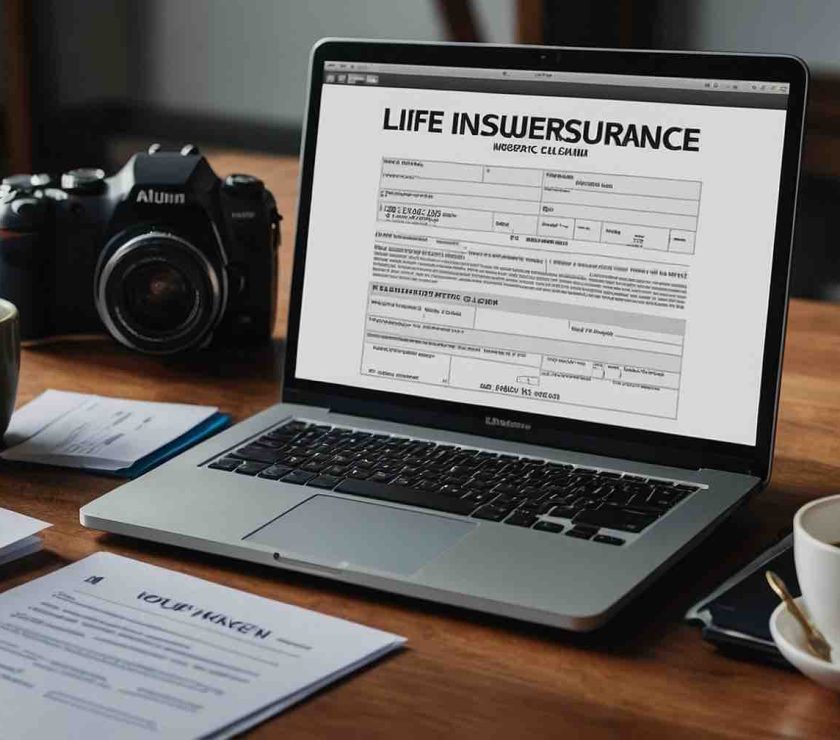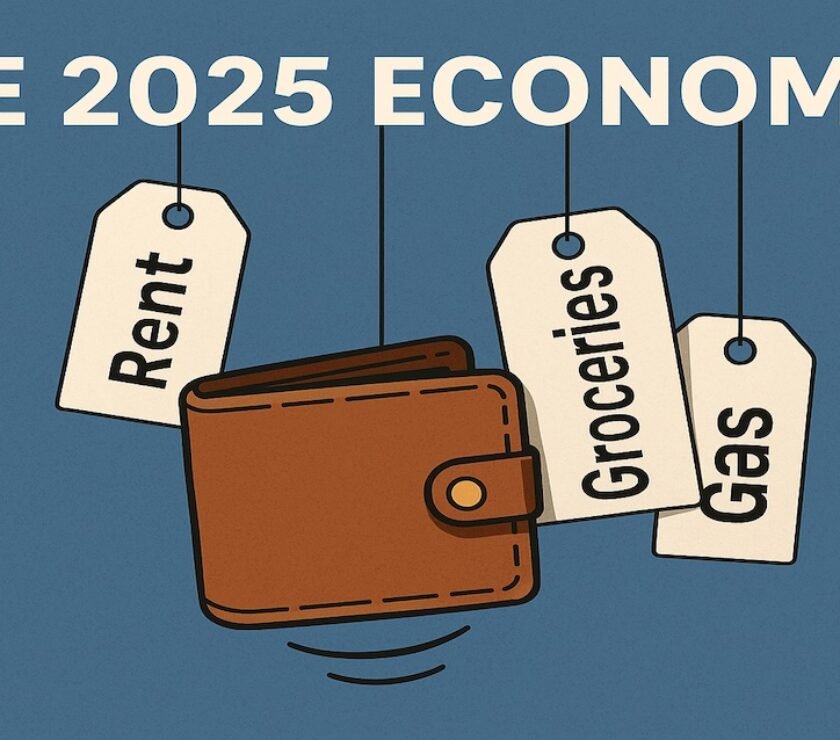TL;DR
Inflation's been creeping in like that one friend who eats your snacks but never chips in (I'm not saying no names). Prices are up, savings are shrinking, and somehow your paycheck isn't stretching like it used to. This guide explains what inflation actually does to your money and how you can fight back with smart systems—from upgrading your banking strategy to building frameworks that protect your cash flow. Gen Z and Millennials, this one's for you.
You ever look at your bank account and think, "Wait, where did all my money go?" You're not alone. And no, you're not splurging more than usual—your money just doesn't go as far anymore.
Blame inflation.
As of early 2025, the inflation rate hit 2.3%—down slightly from previous months, but still enough to mess with your budget. (Source: Trading Economics) And while 2.3% might not sound like a big deal, over time it stacks up and chips away at your savings, your spending power, and your goals. The real issue isn't just rising prices—it's whether your financial system is built to withstand them. Understanding how credit, banking, and cash flow work together becomes critical when inflation forces you to make every dollar count.
The worst part? It happens slowly. You feel it before you see it.
Let's break down what's going on—and more importantly, what you can actually do about it.
Inflation, Explained Like a Real Person Would
So what is inflation, really? It's when prices go up over time. Not just for bougie brunches or concert tickets—for everything. Groceries. Gas. Rent. The cost of just existing.
But here's the kicker: your money doesn't grow along with those prices—unless you make it.
That means $100 today will buy less stuff next year. And if your savings aren't earning enough interest? They're quietly losing value in the background.
How Inflation Shows Up in Your Life
It's not always obvious, but here's where inflation punches the hardest:
- Savings that don't grow: That emergency fund sitting in a basic savings account? Yeah... it's falling behind.
- Everyday costs creeping up: Rent goes up. Groceries cost more. That iced latte? $6.25 now.
- Debt gets trickier: If you've got variable interest rates (looking at you, credit cards), rising rates can sneak in and cost you more over time.
Real Ways to Fight Back (Because You Deserve Better)
1. Don't Let Your Money Sit Still
Money that's just chilling in a low-interest account? It's basically on vacation—while inflation works overtime.
Instead:
- Open a high-yield savings account (HYSAs are paying way more now—some over 4%)
- Consider Treasury Inflation-Protected Securities (TIPS) if you're playing the long game
- Look into index funds or ETFs—they tend to outpace inflation over time
The key is making your money work as hard as inflation works against it. When you grow money slowly and consistently through strategic allocation between high-yield accounts and inflation-resistant investments, you're not just keeping pace—you're building real wealth that compounds faster than prices rise.
Bonus tip: Platforms like Monarch Money can help you track investments, savings goals, and net worth—all in one dashboard.
2. Build a System That Adapts, Not Just a Budget That Restricts
Budgeting doesn't mean no fun—it means no regrets. But when inflation keeps changing the rules, you need more than a static spreadsheet. You need a budgeting framework that actually adapts to inflation—one that accounts for rising costs, protects your priorities, and still leaves room for life.
Use apps like YNAB, Monarch, or even old-school spreadsheets to:
- Spot money leaks (subscriptions, impulse buys, DoorDash addiction)
- Set realistic limits, not dream-killer restrictions
- Build up an emergency fund so inflation doesn't force you into credit card debt
The difference between a budget that works and one that breaks? The first one is a living system. The second is a wish list.
3. Grow Your Income (Even a Little Helps)
You can't always control what things cost—but you can control what you earn.
Ideas to get started:
- Freelance a skill (graphic design, writing, tutoring, social media)
- Sell digital products or start a low-overhead online side hustle
- Invest in skills—take a course, get certified, and negotiate that raise
- Build passive income through things like dividend stocks, real estate, or print-on-demand shops
Why Gen Z and Millennials Feel It the Most
You're not imagining it—our generation's got it rough.
Here's the tea:
- Gen Z is carrying more debt than Millennials did at the same age—adjusted for inflation. Yep. (NPR)
- Everything costs more. Housing. Health care. College. Even dating.
- Jobs aren't stable. Gig work, layoffs, short-term contracts—it's like a rollercoaster, but without the safety bar. (Washington Post)
So yeah—learning to protect your money isn't just a nice-to-have. It's survival mode.
Your Action Plan for Outsmarting Inflation
If you're tired of feeling behind, try this checklist:
✅ Switch to a high-yield savings account
✅ Move extra savings into investments (index funds, TIPS, or real estate if you're ready)
✅ Audit your budget monthly—cut out what isn't serving you
✅ Add a new income stream, even if it's $100 a month
✅ Stay informed (subscribe to newsletters like PersonalOne 😉)
Final Thoughts: Inflation Can't Beat a Smart Money System
Listen—there's no shame in feeling overwhelmed. But you're not powerless. You've got tools. You've got info. You've got a whole generation of people figuring it out with you.
And now, you've got a system.
Start small. Keep learning. And don't let inflation rob you of your future.
You've got this
Turn Inflation Defense Into Wealth Building
Fighting inflation is step one. Building lasting wealth requires understanding how budgeting and saving work together to create a financial system that doesn't just survive rising prices—it thrives despite them. The same discipline that protects your money from inflation becomes the foundation for long-term growth.
Ready to Build a Financial System That Beats Inflation?
Inflation doesn't stop—but neither should your financial strategy. Learn how to connect your banking, credit, and cash flow into one cohesive system that protects your money and helps it grow.
Discover how credit, banking, and cash flow work together →
Want money tips that actually work? Join 2,000+ readers getting weekly strategies for smarter banking, credit repair, and financial confidence. Subscribe to the PersonalOne newsletter.
FAQ: What People Like You Are Asking
Q: Is it bad to keep all my savings in a regular bank account?
A: Not bad, but not smart either. You're losing money to inflation every year. Upgrade to a high-yield savings account ASAP.
Q: What if I don't have enough to invest yet?
A: Start where you are. Even $10 a week into a low-cost index fund can make a difference over time.
Q: Is it too late to start protecting my money from inflation?
A: Never. The best time to start was yesterday. The second best is today.
Related PersonalOne Guides
Got thoughts? Drop a comment below or tag us on IG. We'd love to hear how you're beating inflation—or just trying to.
Liked the post? Buy me a coffee so I can keep writing and stay caffeinated.




